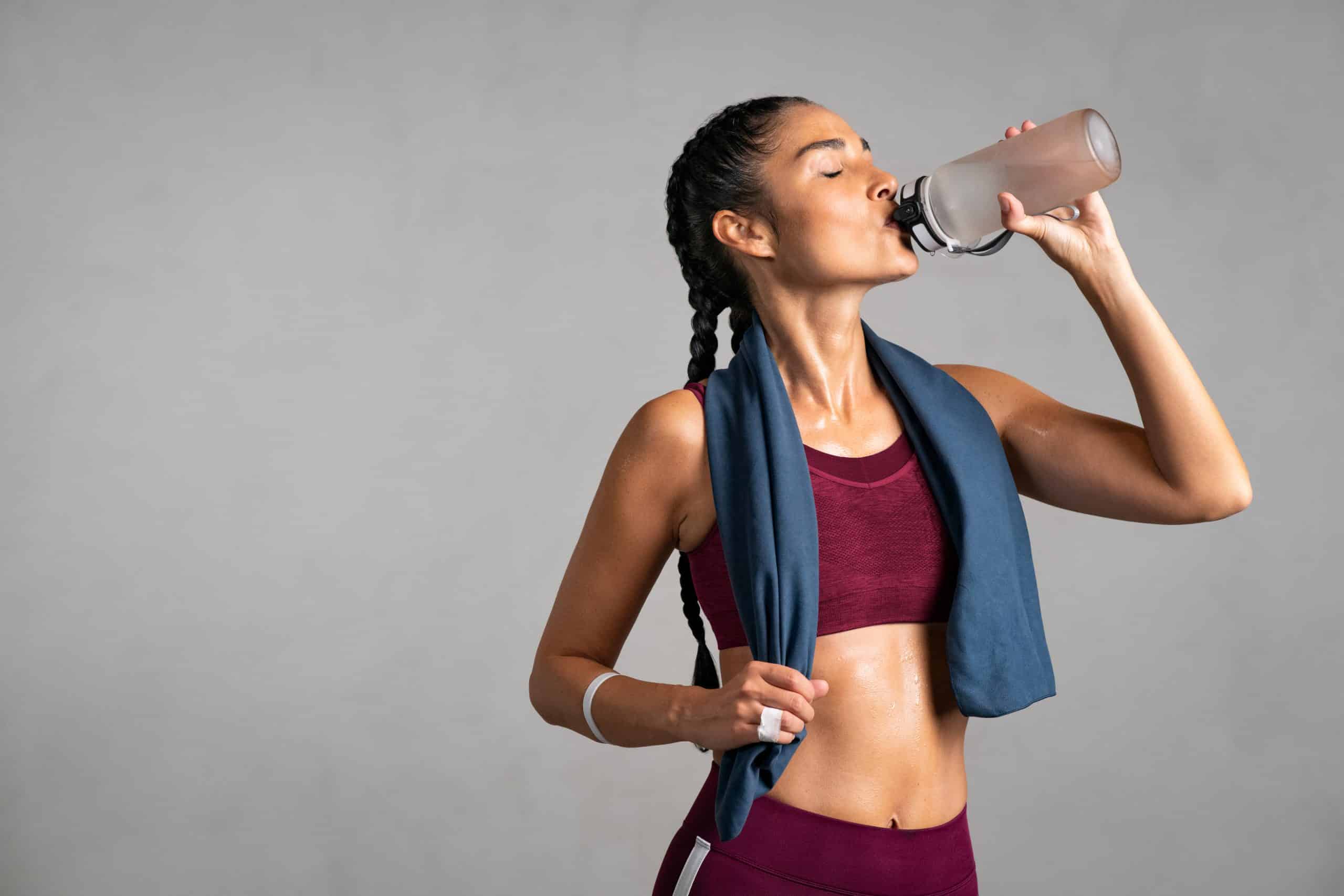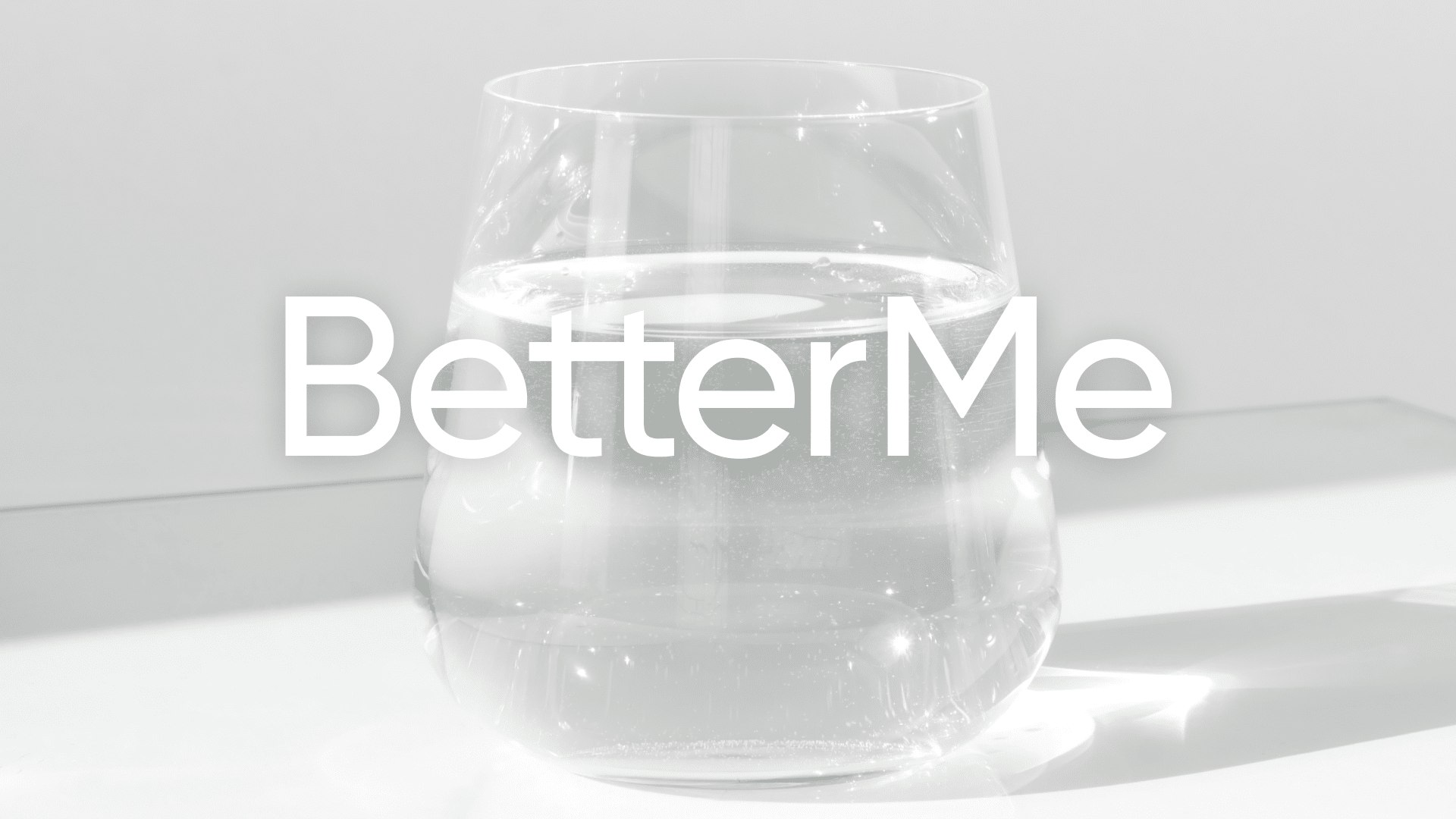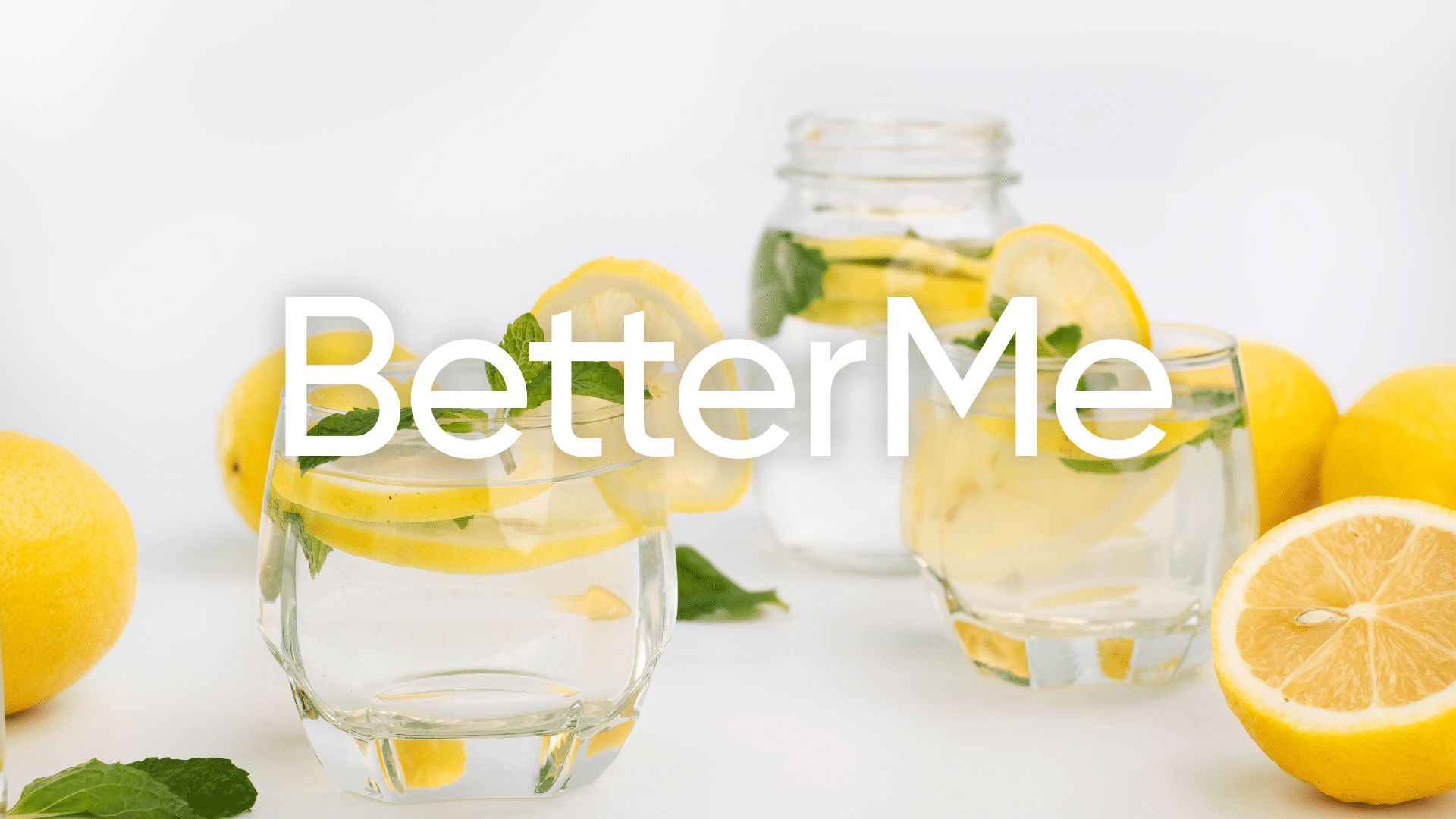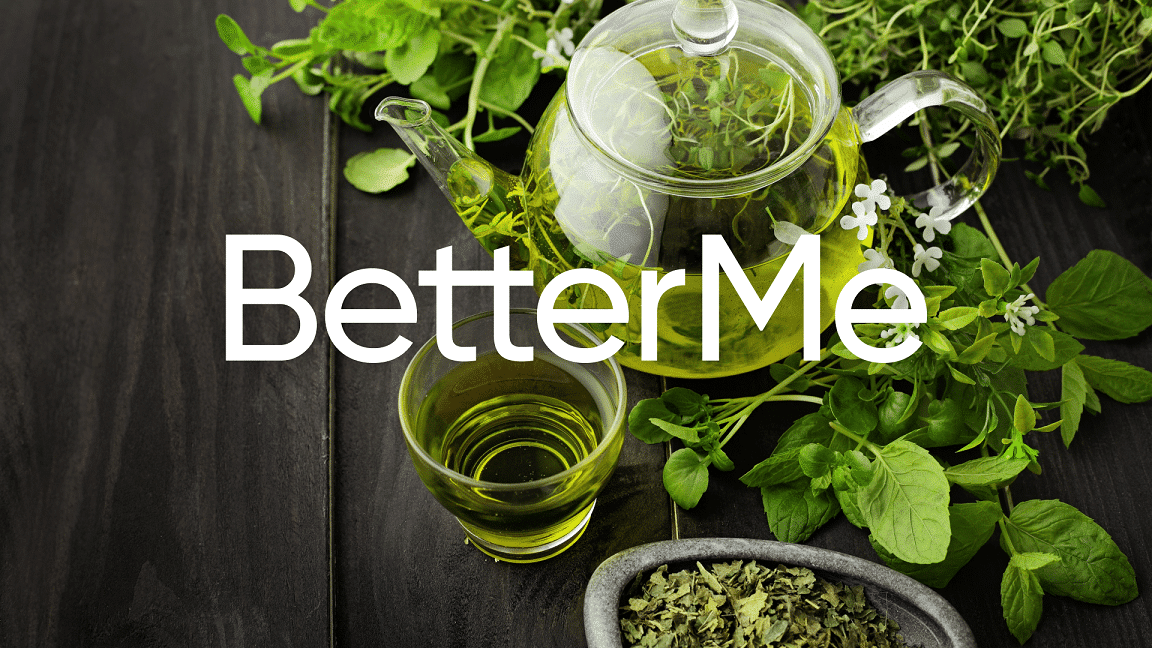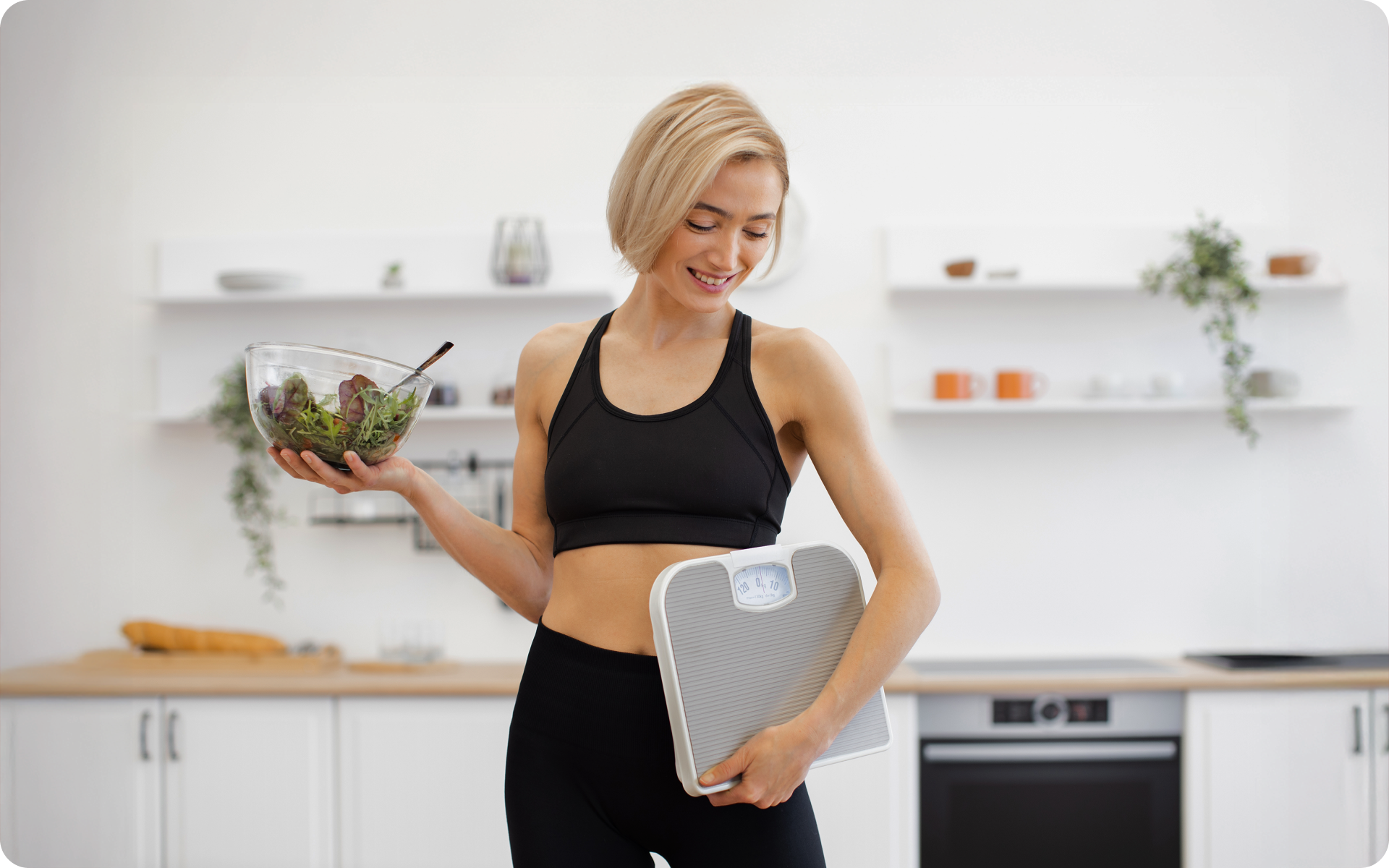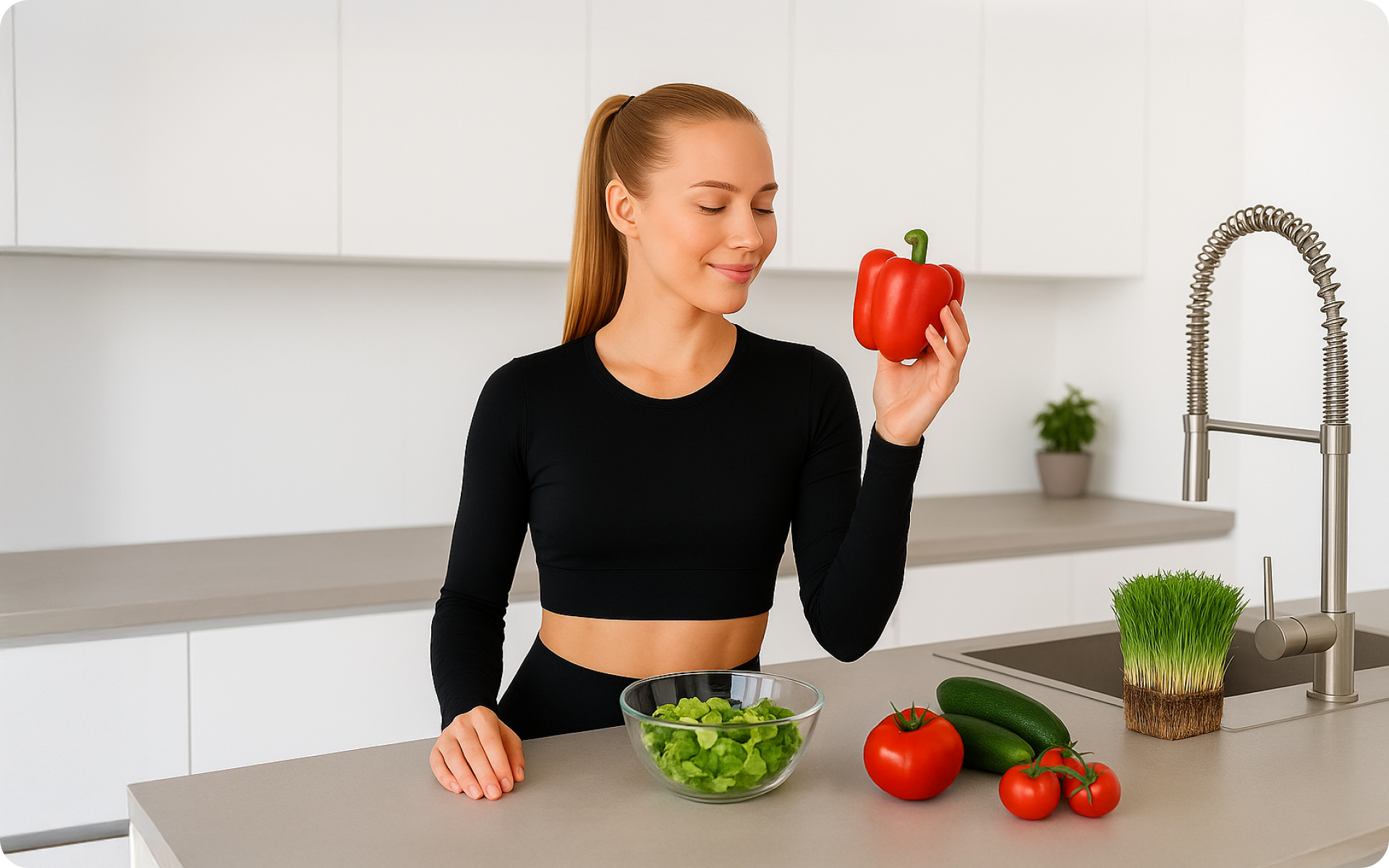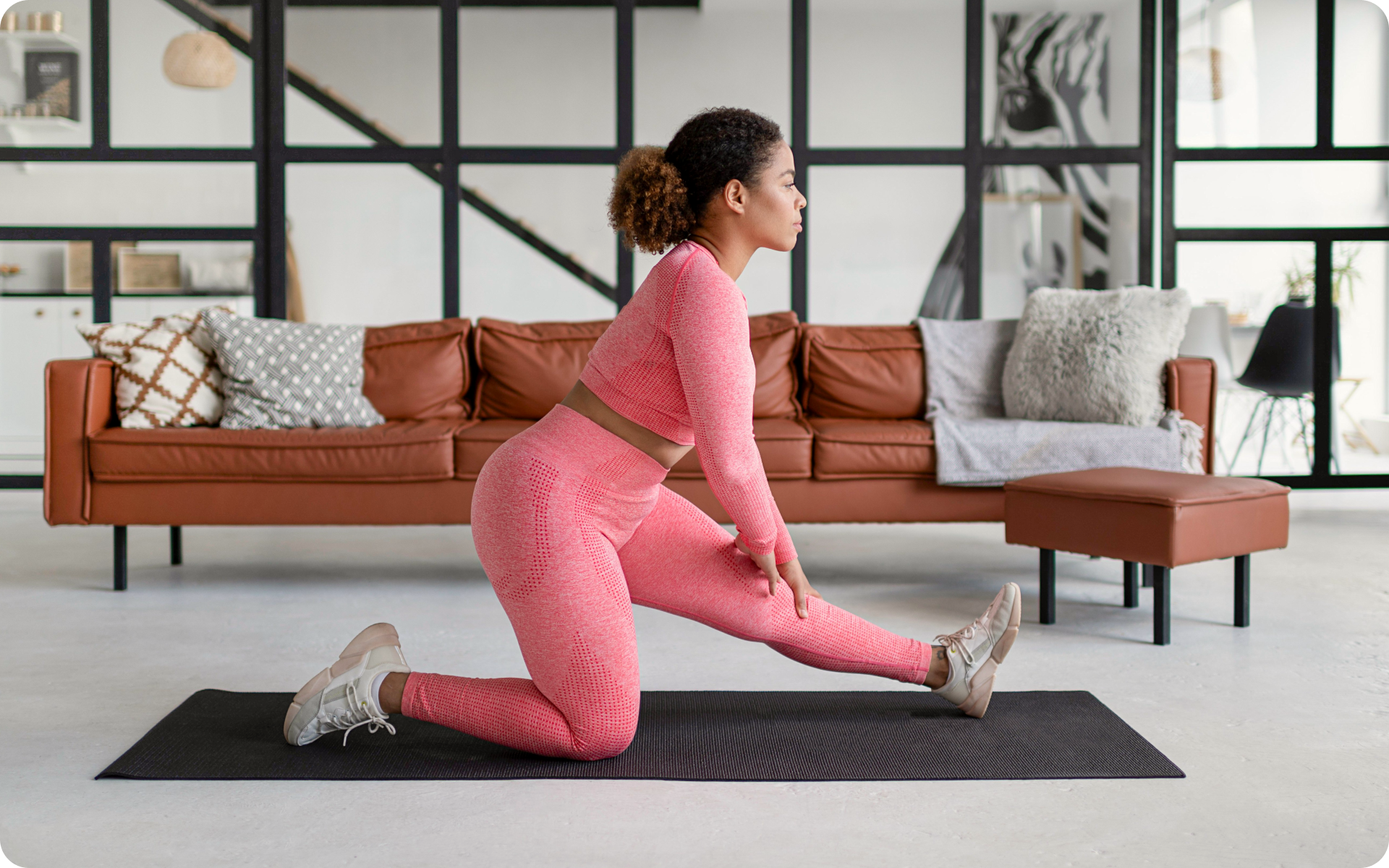Weight loss advice is always followed with the suggestion to drink more water, so much so that water fasts and detoxes have become popular in recent years.
There is some truth behind the notion that increasing your water intake can aid in weight loss, but it’s not as straightforward as drinking gallons of water a day. The amount of water you need varies based on factors such as your weight, activity level, and environment.
Moreover, water alone isn’t a magic bullet for shedding pounds; it should be part of a balanced diet and regular exercise routine.
Here’s what you need to know about how much water to drink for weight loss, the science behind it, and how to incorporate adequate hydration into your weight loss plan.
What Happens To Your Body When You Start Drinking More Water?
When you start drinking enough water, your body starts functioning optimally. All the processes that need water (think blood circulation, digestion, waste removal) become more efficient. This translates into better health and wellness—you’re more likely to feel energized, less bloated, and simply better overall (12).
Now, as far as drinking more water for weight loss, there is some evidence to support this theory. Increasing your water intake may:
Help You Burn More Calories
In one study, overweight women drank an extra 1.5 liters of water every day for an 8-week period. At the end of the study, they experienced a significant reduction in weight, body mass index (BMI), and body fat (2).
Why does this happen? It’s not that water has some magical power to melt away fat; instead, it helps with calorie burn through thermogenesis. This is a process where your body creates heat by burning calories, and drinking cold water can stimulate thermogenesis, leading to slightly increased calorie burn (4).
Don’t expect grand results when you drink water to lose weight in 2 weeks; as you can see, the results of the study we’ve mentioned are modest (about 1 kg over 8 weeks), and it takes a considerable amount of time, as well as other lifestyle changes.
Reasons why BetterMe is a safe bet: a wide range of calorie-blasting workouts, finger-licking recipes, 24/7 support, challenges that’ll keep you on your best game, and that just scratches the surface! Start using our app and watch the magic happen.
Help You Control Your Portions
Another way that drinking more water can aid in weight loss is by helping you control your portions. Sometimes, our body’s thirst signals are mistaken for hunger signals, causing us to eat when we’re actually just dehydrated (11).
By staying well-hydrated you may be able to better distinguish between true hunger and thirst, leading to reduced snacking and overeating.
Additionally, drinking a glass of water before meals can help you feel full and therefore eat less. Water takes up space in your stomach, making you feel more satisfied with smaller portions of food.
Drinking water before meals to feel full doesn’t work for everyone; studies that have demonstrated this connection found that older adults and those with obesity saw the most significant effects (3). That said, it’s worth a try to see if it helps you control your portions.
Provide Better Hydration Than Calorie-Laden Beverages
The most obvious, and perhaps the most reliable way that drinking more water can help you lose weight is by replacing high-calorie beverages with plain water (11).
Sodas, juices, energy drinks, and other sugar-sweetened beverages are loaded with calories and contribute to weight gain. By switching them out for water, you reduce your overall calorie intake without sacrificing hydration.
Calorie-laden beverages also tend to trigger cravings and increase appetite, leading to more snacking and overeating. Water, on the other hand, can help you feel satisfied without adding to your calorie count.
Reduce Water Retention
Water retention, or edema, is a common condition where the body holds onto excess water. It’s caused by many factors, including high-salt diets, hormonal changes, and certain medical conditions.
While drinking more water won’t necessarily help with water retention caused by health issues or medication, it can be beneficial for those who experience mild edema due to diet (13).
When you drink an adequate amount of water daily, your body is less likely to hold onto excess fluids, as it knows it will regularly receive hydration.
The result? A reduction in bloating and the temporary weight gain caused by water retention. You may notice a slight shift in the number on the scale when you start drinking more water, but it’s likely just a drop in water weight.
Improve Exercise Performance
When you’re dehydrated, your body has to work harder to perform the same activities, leading to reduced endurance and strength. You may struggle to complete your workouts, leading to fewer calories burned and slower weight loss progress.
On the other hand, being well-hydrated can improve exercise performance by keeping your muscles nourished with oxygen and nutrients. It also helps maintain electrolyte balance, which is crucial for optimal muscle function.
It also just energizes you to be more active in general. So, drinking more water can actually help you stick to your exercise routine and burn more calories throughout the day (8).
Read more: 6 Cold Water Therapy Benefits Worth Noting
Can Water Reduce Belly Fat?
Yes, but only in the same way that it can help with overall weight loss. Drinking more water won’t specifically target belly fat, but it may contribute to reducing body fat percentage overall in the ways we’ve discussed above, which includes belly fat (2).
However, spot reduction (targeting specific areas for weight loss) is a myth; your body loses and gains fat in a pattern genetically determined and different from someone else’s. Therefore, increasing your water intake may help you lose weight and reduce belly fat, but it won’t do so in a targeted manner.
Can Drinking 2 Gallons of Water a Day Help You Lose Weight?
No, and you shouldn’t even attempt such an extreme amount of water intake. Drinking too much water can lead to a condition called hyponatremia, where your body’s sodium level gets dangerously low (7).
When there’s excessive water in your body, your cells may start absorbing water to dilute the sodium levels, causing them to swell. This swelling can lead to serious health complications such as brain swelling, respiratory distress, and even death (7).
So how much water should you drink a day for weight loss? The general recommendation is 8 glasses or about 2 liters of water per day (11). However, this isn’t necessarily a scientific number, as your individual needs may vary based on factors such as your weight, activity level, and climate.
A good rule of thumb is to tune in to your thirst signals and drink enough water to quench your thirst at a given time.
How do you tune in to your thirst signals? Some degree of mindfulness and self-awareness is necessary. Instead of reaching for a snack when you feel hungry, take a moment to pause and assess if it’s actually hunger or thirst.
How much water have you had, up until this point? Have you been active, and are you sweating a lot?
You likely need to drink more water if:
- You’ve barely had any since the day started.
- You’re in hot and humid weather.
- You’re doing physical activity that makes you sweat a lot.
- You’re consuming caffeine or alcohol, both of which are diuretics and can cause dehydration.
- Your urine is dark yellow or amber in color: This is often one of the first signs that you’re not drinking enough water. When your body is properly hydrated, your urine should be a light yellow color.
- You’re feeling fatigued or lethargic: Water plays a crucial role in energy production in the body. If you’re feeling unusually tired or sluggish, it could be due to inadequate water intake.
- You’re feeling irritable and moody: Dehydration can also affect your mood and cognitive function, leading to irritability and difficulty concentrating.
- You’re experiencing headaches or dizziness: Dehydration can lead to headaches or feelings of lightheadedness due to reduced blood flow to the brain.
- You have dry skin or lips: Your skin and lips can become dry and cracked if your body is not receiving enough hydration.
- You’re constantly hungry, even after eating: As mentioned earlier, your body can sometimes confuse hunger and thirst signals. If you’re eating enough but still feel hungry, you might actually be dehydrated.
- You’re experiencing constipation: Water aids in digestion by softening stool and helping waste move through your intestines. If you’re not drinking enough water, you can become constipated.
Another tip is to keep a water bottle with you throughout the day and aim to finish it by the end of each day.
This way, you can easily track how much water you’re drinking and make adjustments as needed. We love the crystal infusion water bottle as it makes hydration a bit more fun and flavorful.
A hydration challenge, like the one on the BetterMe app, can also help you stay on track and motivated to drink more water.
What’s The Best Time To Drink Water to Lose Weight?
Drinking water before a meal is the only time- and place-specific advice we can give. In a 2010 study, participants who drank water before each meal lost more weight than those who didn’t. It’s believed that drinking water can help fill you up, leading to reduced calorie consumption during the meal.
Aside from this, there isn’t any evidence to suggest that drinking water at specific times of the day will lead to weight loss. However, it’s always a good idea to stay hydrated throughout the day and not wait until you feel thirsty.
Starting your day with a glass of water can help you feel more awake and energized, so it may be beneficial to drink some in the morning. Additionally, drinking water before and after exercise is important for hydration and performance.
BetterMe app will provide you with a host of fat-frying fitness routines that’ll scare the extra pounds away and turn your body into a masterpiece! Get your life moving in the right direction with BetterMe!
What Drinks Speed Up Your Metabolism?
There are certain drinks that may slightly increase your metabolism, due to their caffeine or antioxidant content. These include:
Green tea – contains catechins (antioxidants) and caffeine, two compounds that have been shown to slightly increase metabolism and fat burning (5).
Coffee – contains caffeine, which can temporarily boost metabolism and focus (10).
Matcha tea – similar to green tea, but contains higher levels of antioxidants due to the whole leaf being ground into a powder (9).
Oolong tea – contains caffeine and polyphenols, which may slightly increase metabolism (1).
Water – doesn’t have any special metabolic-boosting properties, but keeping hydrated is crucial for optimal metabolic function (11).
A better way to rev up your metabolism, for a longer period of time, is through regular exercise and building muscle mass (6). This way, your body will burn more calories and help you maintain a healthier body composition.
Read more: Exploring the Nutritional Benefits of Eating Watermelons at Night
FAQs
How Much Weight Can I Lose in 1 Month by Drinking Hot Water?
Drinking hot water alone won’t lead to significant weight loss. It can help with metabolic functions and aid digestion but it won’t directly cause you to lose weight.
However, if you’re replacing sugary drinks or high-calorie beverages with hot (or cold) water, you may see a slight reduction in your weight due to decreased calorie intake.
Remember, healthy and sustainable weight loss is best achieved through a combination of balanced eating, regular exercise, and good hydration.
Why Do You Lose Water Weight First?
Our bodies store glycogen, a form of glucose that provides energy, for future use. When we don’t eat enough carbohydrates, our bodies turn to glycogen stores for energy, which are tied up with water (for every gram of glycogen stored, there are approximately 3-4 grams of water attached).
As the glycogen is used up, the water weight is lost. That’s why the initial weight loss can seem dramatic, but it isn’t indicative of long-term fat loss.
How Much Weight Will I Lose on a 3-Day Water Fast?
A 3-day water fast for weight loss may result in a quick, temporary weight loss, but the weight loss isn’t likely to be significant or sustainable. It’s water weight and you’re likely to regain it once you start eating regularly again.
Plus, it can potentially lead to nutrient deficiencies and other health complications if not done under proper medical supervision. For safe and sustainable weight loss, it’s best to opt for a balanced diet and regular exercise instead of extreme fasting protocols.
The Bottom Line
Drinking water alone won’t magically make you lose weight, but it can definitely aid in weight loss efforts by boosting metabolism, reducing bloating and water retention, improving exercise performance, and helping you stay hydrated and energized. Pay attention to your body’s thirst signals and aim for a healthy amount of water intake each day.
DISCLAIMER:
This article is intended for general informational purposes only and does not serve to address individual circumstances. It is not a substitute for professional advice or help and should not be relied on for making any kind of decision-making. Any action taken as a direct or indirect result of the information in this article is entirely at your own risk and is your sole responsibility.
BetterMe, its content staff, and its medical advisors accept no responsibility for inaccuracies, errors, misstatements, inconsistencies, or omissions and specifically disclaim any liability, loss or risk, personal, professional or otherwise, which may be incurred as a consequence, directly or indirectly, of the use and/or application of any content.
You should always seek the advice of your physician or other qualified health provider with any questions you may have regarding a medical condition or your specific situation. Never disregard professional medical advice or delay seeking it because of BetterMe content. If you suspect or think you may have a medical emergency, call your doctor.
SOURCES:
- Beneficial effects of oolong tea consumption on diet-induced overweight and obese subjects (2009,nih.gov)
- Effect of excessive water intake on body weight, body mass index, body fat, and appetite of overweight female participants (2014,nih.gov)
- Effect of Pre-meal Water Consumption on Energy Intake and Satiety in Non-obese Young Adults (2018,nih.gov)
- Effect of ‘Water Induced Thermogenesis’ on Body Weight, Body Mass Index and Body Composition of Overweight Subjects (2013,nih.gov)
- Green tea for weight loss and weight maintenance in overweight or obese adults (2012,nih.gov)
- Increasing muscle mass to improve metabolism (2013,nih.gov)
- Hyponatremia (2023,nih.gov)
- Hydration to Maximize Performance and Recovery: Knowledge, Attitudes, and Behaviors Among Collegiate Track and Field Throwers (2021,nih.gov)
- Matcha Green Tea Drinks Enhance Fat Oxidation During Brisk Walking in Females (2018,nih.gov)
- The effects of caffeine intake on weight loss: a systematic review and dos-response meta-analysis of randomized controlled trials (2019,nih,gov)
- Yes, drinking more water may help you lose weight (2020,jhu.edu)
- Water, Hydration and Health (2011,nih.gov)
- Will Drinking More Water Help With Edema? (2022,medicinenet.com)
